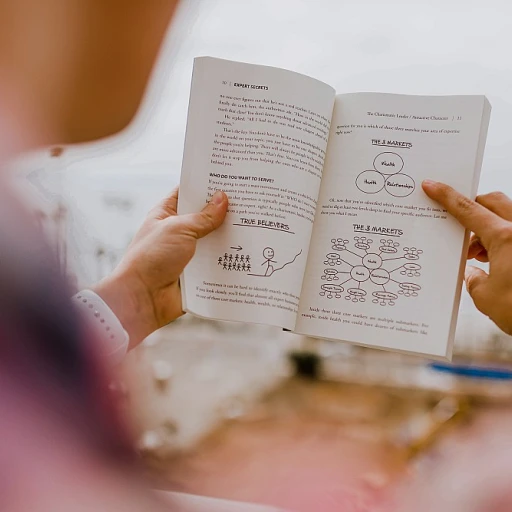
Understanding the Importance of Research in High School
The Power of Early Research Experience
Engaging in research during high school can be a transformative experience for students. It cultivates critical thinking and problem-solving skills that are invaluable both in academia and real-life situations. Those who immerse themselves in scientific research learn to move beyond mere classroom learning, providing a practical framework that deepens their understanding of complex subjects such as science or computer science.
High school research opportunities often serve as a bridge to a future in academia, whether it’s at a university or beyond. By participating in summer programs, students get the chance to explore interests more intensively while working alongside professionals who can mentor them. Not only does this prepare them for college-level coursework, but it also enhances their college application, increasing the probability of acceptance into top programs.
Moreover, the skills acquired through these programs extend beyond the confines of school environment. Collaboration, effective communication, and time management are just a few of the competencies that research participants hone. These are lifelong skills that enhance personal development and are attractive credentials in future academic or professional settings.
Delving into research can also clarify career paths for high school students. Through hands-on experience, they gain insights into different disciplines and can make informed decisions about future major choices. For instance, if participating in a research project at a science camp reveals a passion for the humanities, students might find themselves further exploring this in humanities courses later on.
Where to Find Free Research Opportunities
Uncovering Locations and Platforms for Student Research
High school students seeking research opportunities may find the search process daunting at first, but there are numerous avenues to explore for cost-free programs that help develop valuable skills. Multiple institutions and platforms provide high school juniors and seniors with the chance to engage in integral research experiences. One leading option is summer research programs orchestrated by universities such as Stanford, where students participate in science-oriented projects. These programs typically span a duration of several weeks during the summer months. While many of these research opportunities are cost-free, it's essential to check the specific eligibility requirements and application deadline to secure a spot. Aside from universities, various online research platforms offer high schoolers the flexibility to work on projects remotely. This is especially beneficial for those whose location might not permit easy access to academic institutions renowned for research. Engaging in online research fosters the development of critical skills and exposes students to a wide array of disciplines. Local science centers and educational nonprofits often provide insight into research project involvement as well. These organizations sometimes partner with college programs, allowing students to gain research experience without the hefty expenses of traditional university summer programs. These opportunities empower students to step into the academic realm of research, refining skills in areas such as computer science and structural analysis, which are fundamental for future educational pursuits and professional endeavors. Explore your available options and embark on a transformational journey in the research field.How to Apply for Research Programs
Steps to Secure a Spot in Research Programs
Applying for research programs can be a pivotal step for high school students eager to delve into the world of science and academia. Understanding the process is crucial to ensure a successful application. Here’s a guide to help you navigate through it:
Researching Opportunities
Start by identifying the research opportunities that align with your interests and academic goals. Look for programs that are cost-free or offer scholarships, especially those hosted by universities like Stanford or other reputable institutions. Consider the program dates, typically in June or during the summer, and ensure they fit within your schedule.
Checking Eligibility Requirements
Each program will have specific eligibility criteria. Some may be open to all high school students, while others might target juniors and seniors. Ensure you meet the eligibility requirements before proceeding with the application.
Preparing Your Application
- Personal Statement: Craft a compelling personal statement that highlights your passion for research and your academic achievements.
- Letters of Recommendation: Secure strong letters of recommendation from teachers or mentors who can vouch for your skills and dedication.
- Transcripts: Gather your academic transcripts to demonstrate your scholastic abilities.
Understanding Application Deadlines
Pay close attention to application deadlines. Missing a deadline could mean missing out on a valuable opportunity. Many programs have deadlines in the early spring, so plan accordingly to ensure all materials are submitted on time.
Submitting Your Application
Once your application is complete, submit it through the specified channels, whether online or by mail. Double-check all documents to ensure accuracy and completeness.
By following these steps, students will be well-prepared to apply for research programs that can significantly enhance their academic journey. For more detailed guidance on educational requirements and opportunities, you might find this resource helpful.
Skills Gained Through Research Participation
Developing Essential Skills Through Research
Participating in research programs offers high school students a unique opportunity to develop a wide range of skills that are crucial for both academic and personal growth. Engaging in research projects, whether during the summer or throughout the school year, allows students to delve into subjects like science and computer science, fostering a deeper understanding of these fields.
One of the primary skills gained through research is critical thinking. Students learn to analyze data, evaluate sources, and draw conclusions based on evidence. This analytical approach is invaluable, not only in academic settings but also in everyday decision-making.
Research programs also enhance communication skills. Students will often need to present their findings, whether in written reports or oral presentations. This experience helps them articulate complex ideas clearly and confidently, a skill that is beneficial in college and beyond.
Collaboration is another key skill developed through research. Many programs encourage teamwork, allowing students to work alongside peers, mentors, and university faculty. This collaborative environment teaches students how to work effectively in groups, a skill that is highly valued in both academic and professional settings.
Time management is crucial when balancing research with other academic responsibilities. Students learn to prioritize tasks and manage their schedules efficiently, especially when program dates overlap with school commitments. This skill is particularly important for high school juniors and seniors who are preparing for college.
Finally, participating in research can boost a student's confidence and independence. Successfully completing a research project, whether it's a short-term study lasting a few weeks or a more extensive summer research program, provides a sense of accomplishment and encourages students to pursue further opportunities in their areas of interest.
Balancing Research with Academic Responsibilities
Striking the Perfect Balance between Research Commitments and Academic Responsibilities
Embarking on research opportunities as a high school student can be both an exciting and demanding endeavor. While engaging in a research program provides valuable experiences, it is crucial to maintain a balance with your academic responsibilities. Here are some insights on how students can manage this equilibrium effectively:- Time Management: Participating in a summer research program or engaging in a research project during the school year requires careful time management. Create a schedule that incorporates both research commitments and academic tasks. Identify the program dates, such as durations in weeks or specific dates like June, and plan your schoolwork accordingly.
- Prioritization: Not all tasks are created equal. Prioritize your responsibilities by focusing on deadlines, such as the application deadline for research opportunities or upcoming academic assignments. This will help you stay on top of both areas without feeling overwhelmed.
- Setting Realistic Goals: While it's important to be ambitious, setting achievable goals for your research project and school tasks will prevent burnout. Consider the number of hours you can realistically dedicate to research while keeping up with academic work.
- Communication: Maintain open lines of communication with your program mentors and teachers. Inform them of your commitment as a school junior or senior participating in a high school research program. They might provide some leeway or advice on managing both commitments effectively.
- Self-Care: Amidst the hustle, don't forget the importance of self-care. Ensure you're getting ample rest, especially during intense weeks of research or school exams. This will enhance your productivity in both domains.













